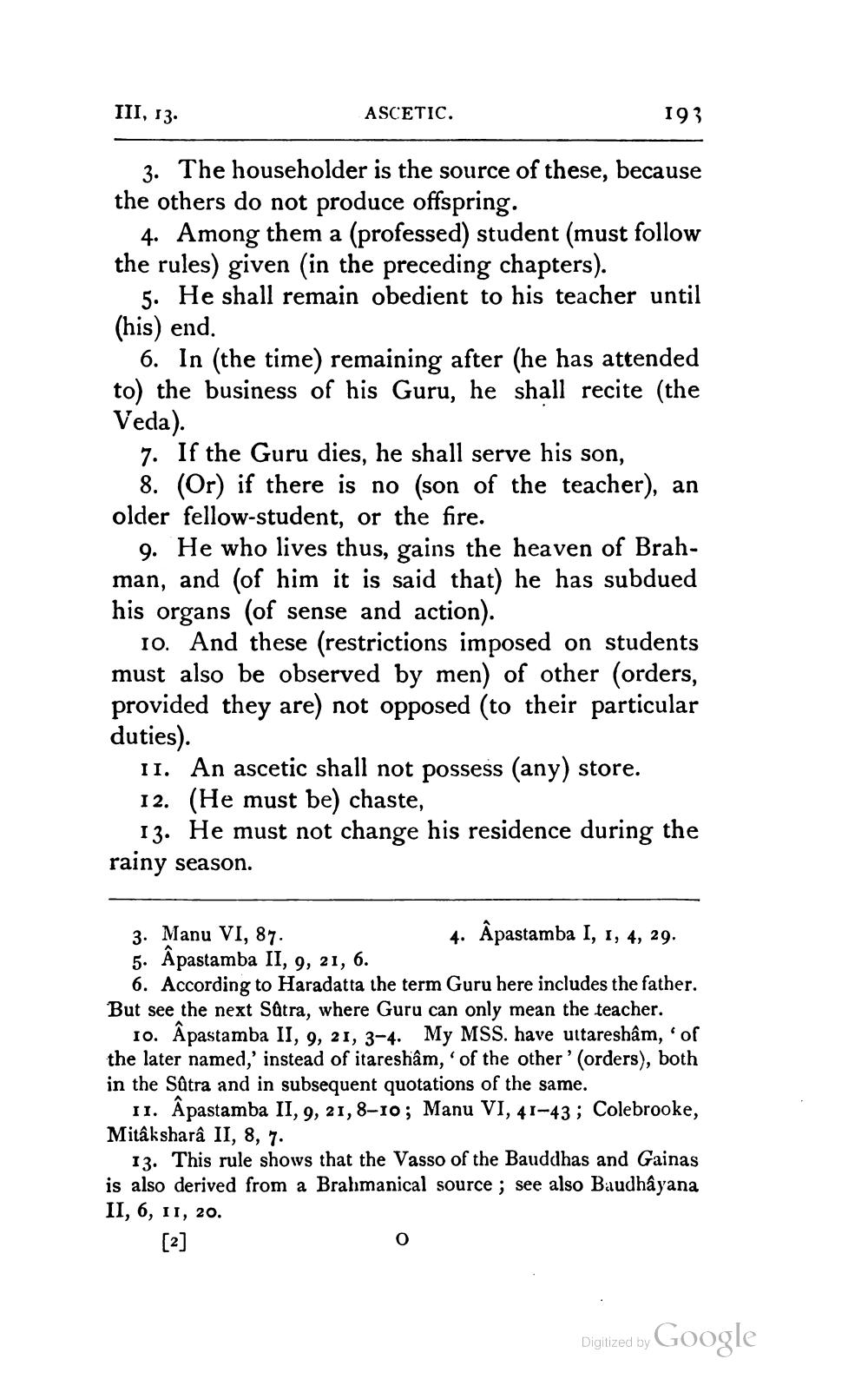________________
III, 13.
ASCETIC.
193
3. The householder is the source of these, because the others do not produce offspring.
4. Among them a (professed) student (must follow the rules) given (in the preceding chapters).
5. He shall remain obedient to his teacher until (his) end.
6. In (the time) remaining after (he has attended to) the business of his Guru, he shall recite (the Veda).
7. If the Guru dies, he shall serve his son,
8. (Or) if there is no (son of the teacher), an older fellow-student, or the fire.
9. He who lives thus, gains the heaven of Brahman, and (of him it is said that) he has subdued his organs (of sense and action).
10. And these (restrictions imposed on students must also be observed by men) of other (orders, provided they are) not opposed (to their particular duties).
II. An ascetic shall not possess (any) store.
12. (He must be) chaste,
13. He must not change his residence during the rainy season.
3. Manu VI, 87.
4. Âpastamba I, 1, 4, 29.
5. Âpastamba II, 9, 21, 6.
6. According to Haradatta the term Guru here includes the father. But see the next Sutra, where Guru can only mean the teacher.
"
'(orders), both
10. Âpastamba II, 9, 21, 3-4. My MSS. have uttareshâm,' of the later named,' instead of itareshâm, ' of the other' in the Sutra and in subsequent quotations of the same. II. Âpastamba II, 9, 21, 8-10; Manu VI, 41-43; Colebrooke, Mitâksharâ II, 8, 7.
13. This rule shows that the Vasso of the Bauddhas and Gainas is also derived from a Brahmanical source; see also Baudhâyana II, 6, 11, 20.
[2]
O
Digitized by Google




